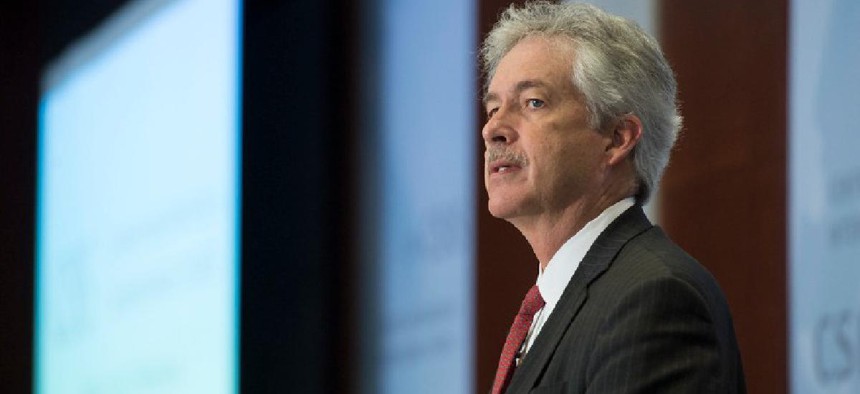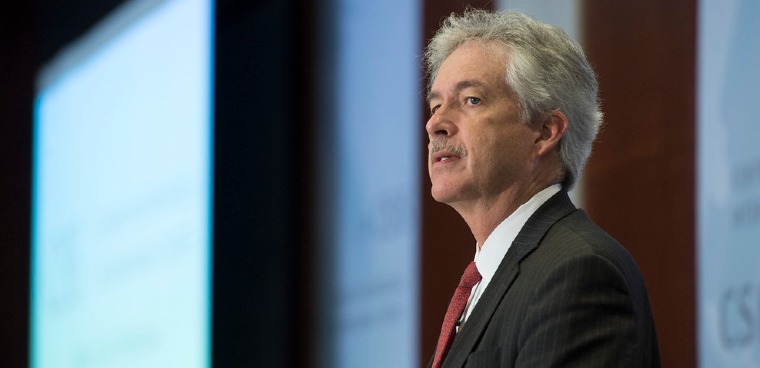CIA nominee: Cyber threats are 'ever greater risk' for U.S. society

William Burns, the president's nominee to lead the Central Intelligence Agency, said the SolarWinds attack was a "harsh wake-up call" about the country’s vulnerabilities in both critical infrastructure and supply chains.

Ambassador William J. Burns at the Center for Strategic and International Studies in 2014. (Photo credit: CSIS. Used under Creative Commons license)
William Burns, the president's nominee to be the next director of the Central Intelligence Agency, told senators Wednesday that cyber threats "pose an ever greater risk to society" and improving the agency's digital capabilities will be a top priority.
The CIA will need "to relentlessly sharpen its capabilities to understand how rivals use cyber and other technological tools, anticipate, detect and deter their use and keep an edge in developing them ourselves," Burns said during his confirmation hearing.
President Joe Biden tapped Burns, a career foreign service official, to become the director of the Central Intelligence Agency in January. Former Secretary of State James Baker, who introduced Burns alongside former Secretary of Defense Leon Panetta, characterized him as "quite simply one of the finest and most intelligent American diplomats that I had the pleasure of working with."
In response to a question from Sen. Dianne Feinstein (D-Calif.), Burns said the hearing the Senate panel held with technology executives on Tuesday highlighted a "harsh wake-up call" about cybersecurity vulnerabilities in the United States.
The cyberattack involving SolarWinds was a "very harsh wake-up call, I think, for all of us about vulnerability of supply chains and critical infrastructure in both the private sector and the public sector in this country," Burns said.
"And we've seen in recent years how both the Chinese leadership as well as the Russian leadership have an aggressive determination to take advantage of those vulnerabilities," he added.
In his answers to his written questions, Burns specifically called out the threat posed by foreign intelligence services; Russian intelligence operatives are suspected to be behind the breach of SolarWinds' software.
"On a daily basis, foreign intelligence services and cyber criminals employ sophisticated and technologically advanced capabilities and tactics in their non-stop efforts to steal the classified information collected, stored, and processed by CIA," he wrote. He added that he would direct investments for improvements in artificial intelligence and technologies to secure supply chains.
The panel's chairman, Sen. Mark Warner (D-Va.), complimented Gina Haspel, who was nominated to be CIA director by former President Donald Trump, for her work as the intelligence agency's chief under "difficult conditions."
He asked Burns how he would go about restoring workforce morale given statistics about personnel leaving the agency. Burns responded that he would remind the agency's workforce "their work matters more than ever."
Burns also said he would take a "hard look" at how to balance retirements of veteran CIA personnel while also recruiting a younger workforce that cannot be onboarded until they receive security clearances, a process that can take a year or longer.


